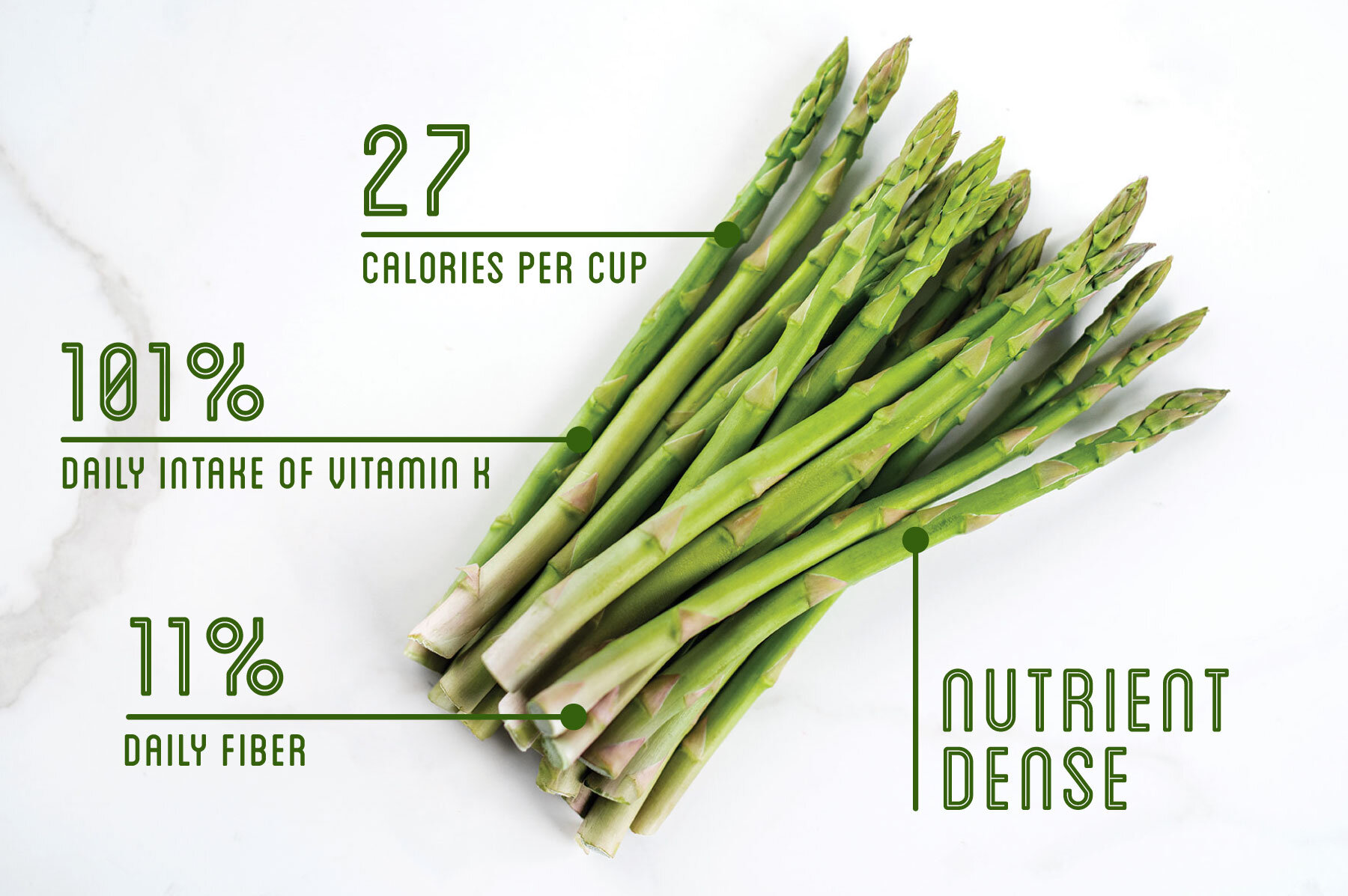Asparagus Nutrition: How This Vegetable Improves Your Health

Table of Contents
The Impressive Nutritional Profile of Asparagus
Asparagus boasts a remarkably rich nutritional profile, making it a valuable addition to any healthy diet. Its impressive nutrient density contributes to various aspects of well-being. Let's explore the key components of asparagus nutrition:
-
Vitamins: One cup of cooked asparagus provides a significant amount of essential vitamins. It's a particularly excellent source of Vitamin K, crucial for blood clotting and bone health (contributing to approximately 18% of the recommended daily intake). It also offers good levels of folate (vital for cell growth and development, especially during pregnancy), Vitamin A (supporting vision and immune function), Vitamin C (a powerful antioxidant), and Vitamin E (another antioxidant protecting cells from damage).
-
Minerals: Asparagus is also a good source of several essential minerals. It contains a notable amount of potassium, which plays a vital role in regulating blood pressure; phosphorus, essential for bone health and energy production; and manganese, important for metabolism and wound healing.
-
Antioxidants: Asparagus is rich in antioxidants, including glutathione, which helps protect cells from damage caused by free radicals. These antioxidants contribute to overall health and may help reduce the risk of chronic diseases.
-
Fiber: This nutrient-rich vegetable is a good source of dietary fiber, promoting healthy digestion and regularity. Fiber also contributes to feelings of fullness, which can aid in weight management.
Asparagus and its Impact on Your Health
The impressive nutritional composition of asparagus translates into a variety of significant health benefits.
Boosting Your Immune System
The high concentration of vitamins C and E, alongside other antioxidants in asparagus, strengthens the immune system. These nutrients combat oxidative stress, protecting cells and supporting the body's natural defense mechanisms.
Improving Digestive Health
Asparagus's fiber content is a key player in promoting healthy digestion. Fiber adds bulk to the stool, preventing constipation and promoting regular bowel movements. It also feeds beneficial gut bacteria, contributing to a thriving gut microbiome.
Supporting Heart Health
The potassium in asparagus contributes to healthy blood pressure levels. Potassium helps balance sodium levels in the body, reducing strain on the cardiovascular system. A diet rich in potassium is associated with a lower risk of heart disease.
Promoting Weight Management
Asparagus is low in calories and high in fiber. This combination makes it a satisfying and healthy addition to any weight-management plan. The fiber content promotes satiety, helping you feel fuller for longer and potentially reducing overall calorie intake.
Incorporating Asparagus into Your Diet
Adding asparagus to your diet is easier than you might think! Its versatility makes it suitable for a wide range of cooking methods and culinary creations.
-
Simple Roasting Recipe: Toss asparagus spears with olive oil, salt, pepper, and your favorite herbs (rosemary, thyme, or garlic are excellent choices). Roast at 400°F (200°C) for 12-15 minutes until tender-crisp.
-
Grilling Asparagus to Perfection: Simply toss asparagus with olive oil and seasonings, then grill for a few minutes per side until tender and slightly charred.
-
Adding Asparagus to Salads and Omelets: Asparagus adds a delicious and nutritious boost to salads. It also pairs well with eggs in omelets or frittatas.
-
Using Asparagus in Pasta Dishes or Stir-fries: Asparagus can be incorporated into pasta dishes, stir-fries, or added to soups for a healthy and flavorful addition.
Conclusion
Asparagus nutrition offers a wealth of health benefits. From boosting your immune system and improving digestion to supporting heart health and aiding in weight management, this versatile vegetable is a true superfood. Its rich vitamin, mineral, and antioxidant content makes it a valuable addition to a balanced diet. Discover the amazing world of asparagus nutrition and start reaping the benefits of this delicious and healthy vegetable today! Add asparagus to your shopping list this week and explore the many delicious ways to incorporate it into your meals. For more delicious asparagus recipes, check out [link to a recipe website or blog].

Featured Posts
-
 Ups Exploring Humanoid Robots With Figure Ai
May 01, 2025
Ups Exploring Humanoid Robots With Figure Ai
May 01, 2025 -
 Analyzing Trumps Proposal Can Tariffs Substitute Income Taxes
May 01, 2025
Analyzing Trumps Proposal Can Tariffs Substitute Income Taxes
May 01, 2025 -
 Police Accountability Review Campaigners Raise Serious Concerns
May 01, 2025
Police Accountability Review Campaigners Raise Serious Concerns
May 01, 2025 -
 Michael Sheens Port Talbot Home Paying Off Neighbours Debts
May 01, 2025
Michael Sheens Port Talbot Home Paying Off Neighbours Debts
May 01, 2025 -
 Canadas Conservative Leader Defeated In Election
May 01, 2025
Canadas Conservative Leader Defeated In Election
May 01, 2025
